Shervin Molayem
Periodontist, Bedford Dental Group, Beverly Hills, California, USA

Aim and Scope
Journal of Oral Medicine and Dental Research (ISSN- 2583-4061) (Crossref DOI Prefix 10.52793) (H-Index: 2) Impact factor: 3.18 is a peer-reviewed open-access journal covering all aspects of dentistry. Journal of Oral Medicine and Dental Research is a medical journal aimed to publish original scientific research papers including, short communications, review articles, case reports, and clinical and laboratory studies in all fields of dentistry.
Journal of Oral Medicine and Dental Research publishes all the articles with the utmost quality and transparency of current information and is freely available to researchers worldwide. The mission of this journal is to spread knowledge covering a wide range of fields on like clinical studies and experimental research in dentistry and related disciplines, including operative dentistry, biomaterials, periodontics, prosthodontics, pediatric dentistry, restorative dentistry, oral and maxillofacial surgery, and oral pathology, Dental Hygienist & Atrial Fibrillation.
Editor spotlight
Journal of Oral Medicine and Dental Research upholds an Editorial Board of practicing researchers from around the world, to ensure manuscripts are handled by editors who are professionals in the arena of study.
Submit the manuscript as an e-mail attachment to the Editorial Office at dentalresearch@genesispub.org or dentistry@genepub.org
Ownership and Management
Journal of Oral Medicine and Dental Research is owned and published by Genesis Scientific Publications, a privately held academic publishing company based in Chandigarh, India.
Genesis Scientific Publications is responsible for the journal’s production, online hosting, digital archiving, and distribution.
The journal maintains full editorial independence. All editorial decisions, including peer review, article acceptance, and publication, are made solely by the editorial team in accordance with international publishing ethics and best practices.
Contact: contact@genesispub.org
Publisher Website: https://www.genesispub.org/
Responsible Person: Editor-in-Chief: Shervin Molayem
Indexing and Abstracting:
© 2023 Genesis Scientific Publications | Open Access | Licensed under CC BY 4.0

Periodontist, Bedford Dental Group, Beverly Hills, California, USA

Associate Professor, Institute for Research in Dental Sciences, Faculty of Dentistry, University of Chile, Santiago, Chile

Adjunct Professor, Department of Dentistry, Vita-Salute San Raffaele University, Milan, Italy

Department of Pediatric Dentistry, School of Dentistry, University of Athens, Greece

Orthodontist, The Oxford Dental College, Bangalore, India

General Dentist, Specialist Medical Centre, Dubai, United Arab Emirates

Associate Professor, Department of Dentistry, Kodagu Institute of Medical Sciences, Karnataka, India
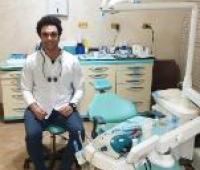
Prophylaxis DSSA, MTI University, Egypt
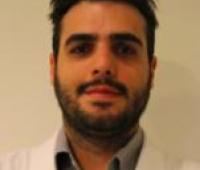
Oral and Maxillofacial Surgery, Dental School at Araraquara, UNESP, Sao Paulo, Brazil

Periodontist, Bedford Dental Group, Beverly Hills, California, USA

Member of the Service of Dentistry and Oral-Maxillofacial Surgery, Specialty of Periodontology, San Joaquin UC Medical Center, UC / Christus Health Network, Faculty of Medicine, Pontificia Universidad Catolica de Chile, Chile

Implantologist Surgeon and Forensic Dentist Practices, Italy

Associate Professor, Department of Prosthodontics, Dokuz Eylul University School of Dentistry, Turkey

Director of Oral and Maxillofacial Surgery, University Maimonides, Argentina; Clinic Specialized in Bucomaxillofacial Surgery and Traumatology, Consultorio Odontologico Dr. Eduardo Rey, Argentina; Specialist in Oral and Maxillofacial Surgery and Traumatology, Argentina

Assistant Professor, Maharana Pratap Dental College, India

Adjunct Professor Nebraska-Lincoln University USA; Sports and Regenerative Orthopaedic Surgeon, HYGEIA Hospital, Athens, Greece

Research Assistant Professor, Department of Pediatrics, Northwestern University Feinberg School of Medicine, Chicago, Illinois, USA

Associate Professor of the Specialty of Oral Maxillofacial Surgery and Traumatology at the University of Maimonides (UMAI); Specialist in Surgery and Traumatology BMF, Argentina

Owner, Dentist, Salvatore La Terra Dental Practice, Ragusa, Ragusa, Italy

Clinical Observership in Oral and Maxillofacial Surgery, Head and Neck Surgery, Leeds Teaching Hospitals, NHS Trust, United Kingdom

Dentist, Kalawegh Center, Saudi Arabia

BDS; MSc (Clinical practice) (London); DClinDent (Paediatric dentistry) (London); MPaed Dent RCS (Edinburgh)
Assistant Professor - Paediatric Dentsitry (Dow International Dental college)

Clinical Fellow, Department of Oral & Maxillofacial Surgery, Division of Oncology, University, Massachusetts General Hospital, Boston, United States of America

Doctor of Dental Surgery (DDS) | School of Dentistry, Shahid Beheshti University of Medical Sciences (SBMU), Tehran, Iran

Doctorate Degree in Dentistry, Department of Dental Materials and Prosthetics, School of Dentistry of Ribeirão Preto of the university of São Paulo, Ribeirão Preto, Brazil.

Editor-In-Chief, Prosthodontist & Oral Implantologist, Saudi German Hospital, Saudi Arabia

Endodontist, Conservative Dentistry and Endodontics, Bangaluru, India

Digital Dentistry Consultant, Perio Implantologist, Lecturer at Digital Dentistry Schoology, Egypt

General Dentist, John’s Family & Implant Dentistry

Uni-CET University Center and Focus International

Oral squamous cell carcinoma (OSCC) ..

Achieving predictable osseointegration ..

Excessive gingival display (EGD) is a ..

Background: Various materials are ..
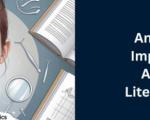
Smile aesthetics is a fundamental ..

The ability of a device to carry out ..

Objectives: Musculoskeletal ..
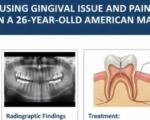
A fused tooth is a developmental ..
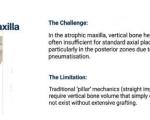
Rehabilitation of the severely atrophic ..

Awake bruxism is a prevalent oral ..
Genesis Scientific Publication is a self-governed as self-financed organization which aims not to receive any kind of external support from institutions/organization. Hence, the processing charges received from the authors and some academic/corporate sponsors are the sole means of the operation of manuscripts. And for maintenance, the fee is being received namely “Handling Fee”.
Thus, our group is like an open book which can be accessible by anyone who is passionate about journals with any chargeable fee i.e. it’s absolutely free for readers. However, authors are supposed to pay the handling fee which is required for processing of articles only and no other fee will be charged. And there is a provision made for authors i.e. the payment will only be done after the publication of the manuscript. It provides immediate open access to its content on the principle that making research freely available to the public supports a greater global exchange of knowledge and the charges cover the costs of turning a manuscript into a finished article, and also consists of promotion and distribution fee. Thus, this fee varies accordingly with the extent or type of colored effects, complex equations, extensive editing and extra elongation of no. of pages of the article etc.
Moreover, no one can change one's mind or authors as it keeps on changing so authors are responsible for paying 70% of the manuscript handling fee once the article is submitted and accepted in the journal.
The standard processing fee of journal for all type of articles is mentioned below:
|
MANUSCRIPT TYPE |
ARTICLE PROCESSING CHARGES |
||
|
USD |
EURO |
GBP |
|
|
ALL ARTICLE TYPES |
1500 |
1389 |
1195 |
Genesis Journals is committed to maintain the best level of sincerity within the content published in the journal.
Genesis Journals following International Committee of Medical Journal Editors principles on the way to affect acts of misconduct thereby committing to research allegations of misconduct to make sure the purity of research.
The research being reported in articles must be conducted in an ethical manner and must suits all relevant legislation. Authors must refrain from engaging in scientific misconduct.
Authors should present their results honestly and clearly without any fabrication, falsification, or any kind of inappropriate data manipulation. The authors should strive to explain their methods clearly and unambiguously must guarantee the originality of their material and their findings are often confirmed by others.
Authors should provide appropriate acknowledgement and authorship. All authors must have significantly contributed to the research. Authors must refrain from deliberately misrepresenting a scientist’s relationship with published work. Contributors who have made fewer substantial contributions to the research or to the publication are often acknowledged but shouldn’t be identified as authors.
Authors must tell the journal once they have an immediate or indirect conflict of interest with editors or members of the editorial board or International scientific committee.
Genesis Journals employ a double-blind review process. All contributions are going to be initially assessed by the editor. The editor is solely and independently liable for selecting, processing, and deciding which of the articles submitted to the journal meet the editorial goals and will thus be published. Each paper selected is shipped to two independent peer reviewers who are experts in their field and ready to assess the exact qualities of the work. The editor is liable for the final decision regarding whether the paper is accepted or rejected.
The decision to publish a paper will always be measured in accordance with its importance to researchers, practitioners, and potential readers. Editors should make unbiased and independent decision.
The editor’s action and decision are constrained by ethical and legal requirements like its own governing infringement of copyright and plagiarism.
Editors who make final decisions about manuscripts should withdraw from editorial decisions if they need conflicts of interest or relationships that pose potential problems concerning articles into account. The responsibility of the ultimate decision regarding publication are going to be attributed to an editor who doesn’t have any conflicts of interest.
The members of the editorial board ,chief editor, scientific committee, and reviewers shall withdraw in any case of conflict of interest concerning an author or authors, or the content of a manuscript to be evaluated.
The Journal will avoid all conflict of interest between authors, reviewers, and members of the editorial board and International scientific committee.
Each article submitted is the responsibility of one member of the editorial board or of the international scientific committee, who undertakes to have it evaluated by two peers who are experts in the field and who evaluate it anonymously.
Reviewed articles are treated confidentially by journal editorial board members and reviewers
In no case shall a journal and members of the editorial board encourage misconduct of any kind.
Members of the Journal editorial board shall attempt to prevent misconduct by informing authors and reviewers about the moral conduct required of them. Members of the editorial board, scientific committee, and reviewers are asked to remember of all kinds of misconduct to spot papers where research misconduct of any kind has or seems to possess occurred and affect the allegations accordingly.
Where appropriate, journal editors encourage authors to share the info that supports research publications. Editors encourage authors to state the supply of their data during a data statement attached to the submitted article. With the info statement, authors are often transparent about the info they utilized in the article.
All reviewers must know and keep in mind the editorial policy and publication ethics and malpractice statement.
Genesis Journals requires potential reviewers to have scientific expertise or significant work experience in a relevant field. They must have acquired recognized expertise by their peers and recently conducted research work. Potential reviewers should provide personal and professional information which is accurate, and which gives a fair representation of their expertise.
All reviewers must likewise withdraw if they feel their evaluation of the material will not be objective or they know they are unqualified to evaluate a manuscript, or if they understand themselves to be in a conflict of interest.
Reviewed articles are treated confidentially by reviewers and members of the editorial board and international scientific committee.
Reviewers should point out relevant published work which has not yet been cited in the reviewed material. Reviewers are asked to identify papers where research misconduct has or seems to have occurred and inform the editorial board, which will deal with each case accordingly.
The copyright on the original content and intellectual property shall remain with the authors. The authors grant, in exchange for publication in the Journal exclusive licensing of first publication, giving the Journal the right to produce and disseminate the contributions, whether collectively with other articles or individually, and in all media, forms known or to come.
The authors shall guarantee the originality of their material and shall not publish any text that would appear to contradict. Plagiarism and false or intentionally misleading declarations constitute behaviour that is at odds with the ethics of scientific publication.
No significant part of the article shall have been previously published either as an article or as a chapter or be under consideration for publication elsewhere.
If the authors intend to reproduce their article in other publications or for any other purpose and by any means, they must obtain the written authorization of the editorial board.
Articles are published in open access. There are no associated subscriptions or pay-per-view fees. All material is made available under the terms of the Creative Commons Attribution-Noncommercial-No Derivatives 4.0 International license (CC BY-NC-ND 4.0).
Journal’s content is archived in several copies by open edition, a publisher of online, free-access books and journals longer published, open edition maintains free access and will continue to make all archives available online.
The names of authors, reviewers, and collaborators along with the names of their organizations and institutional affiliations, which the Journal may record during its operations, shall remain confidential and shall not be used for any commercial or public ends beyond the signature of the articles published. However, this information may sometimes be required by government grant-giving bodies. The secrecy of the peer review selection shall be maintained when transmitting this information. A list of the names of authors, reviewers, and collaborators and the names of their organizations and institutional affiliations shall be sent with no explicit links between those named.
Genesis Journals may use these lists for its own purposes of request articles, collaboration, or other contributions, notably through occasional e-mails.
The authors retain the copyright of the content and grant the magazine the right to be the first to publish the article. This publication will be made under license, which allows others to share and reproduce the contents as long as the original authorship in the magazine is acknowledged and quoted.
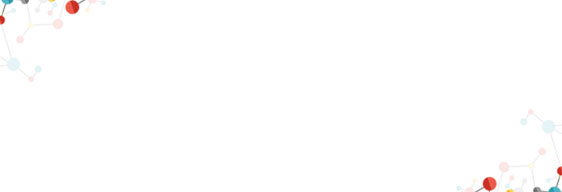

Excessive gingival display (EGD) is a multifactorial aesthetic concern commonly managed through ..

Achieving predictable osseointegration remains challenging in compromised bone. Ultraviolet (UV) ..

Oral squamous cell carcinoma (OSCC) contributes to nearly 90% of oral cancers and maintains a poor ..

Awake bruxism is a prevalent oral parafunctional activity characterized by repetitive or sustained ..

Rehabilitation of the severely atrophic maxilla remains a major clinical challenge due to limited ..

A fused tooth is a developmental anomaly where two adjacent tooth buds join together during ..

Objectives: Musculoskeletal disorders (MSDs) affect most dental hygienists, causing pain, ..

The ability of a device to carry out tasks often associated with human intellect, such as thinking, ..

Full implant rehabilitations have become an increasingly effective solution for patients seeking to ..

Background: Various materials are suggested for dentine rewetting, disinfection, and ..

Smile aesthetics is a fundamental determinant of facial attractiveness, social interaction, and ..

Mandibular fractures are frequent among facial injuries and tend to arise from trauma. Though ..

Orthodontic relapse has been an ongoing challenge that orthodontic practioners encounter. Despite ..

The review dives in many factors that determine the outcome of dental implant treatment in the ..
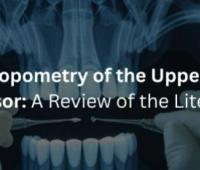
The esthetic dimensions and proportions of the upper central incisors (UCI) are fundamental in ..
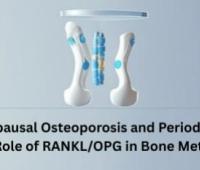
This study investigates the relationship between postmenopausal osteoporosis/osteopenia and ..
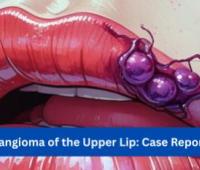
Aim and background A benign proliferation of the blood vessels exhibiting swift growth is ..
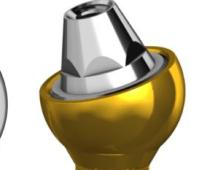
Dental implants are a well-documented intervention for both partial and complete edentulism. As the ..
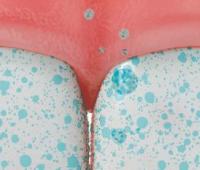
Background Enamel microhardness can be reduced after orthodontic treatment caused by enamel ..
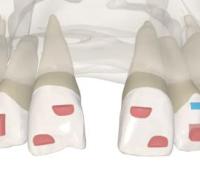
Clear aligners have proven to be an effective tool in orthodontics, but the predictability of ..
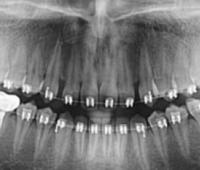
Background Malocclusion, a common oral condition, can result from genetic or environmental ..

Introduction: With the improvement in knowledge about dental caries, various approaches such ..
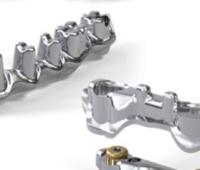
Implant overdentures offer a practical and effective solution for edentulous patients with limited ..
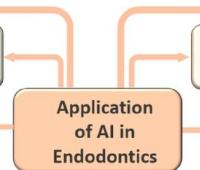
The aim of this study is to evaluate the accuracy, completeness and readability of the answers ..
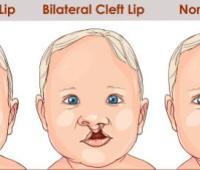
Pierre Robin Syndrome (PRS) is a congenital condition characterized by micrognathia, glossoptosis, ..
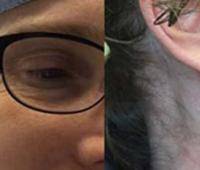
Vascular anomalies of the soft tissue, encompassing malformations and tumors, arise from errors in ..
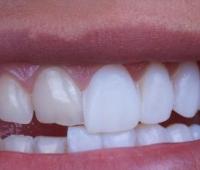
Porcelain veneers are a popular cosmetic dentistry solution known for enhancing the appearance of ..
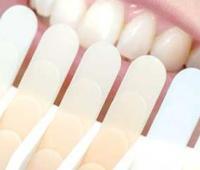
Backgound: While in-home tooth whitening with peroxide-based strips has been practiced for many ..

Background: Because musculoskeletal disorders (MSDs) are common among dental clinicians, there ..
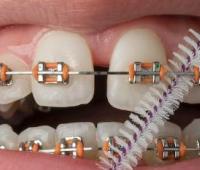
Introduction: Fixed orthodontic appliances are increasingly in demand. However, there are several ..

Introduction: Gingival recession, characterized by the apical migration of gingival tissues from ..
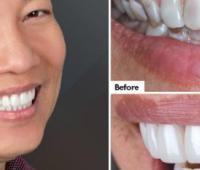
Supernumerary teeth are known as an anomaly related to the number of teeth where there is an ..
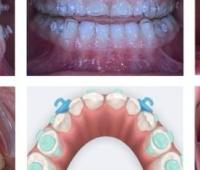
The purpose of this case report is to describe the treatment of a Class III malocclusion in the ..
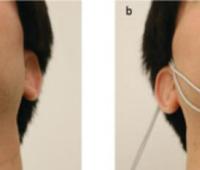
Background Temporomandibular disorder (TMD) is a multifactorial disease often linked to ..
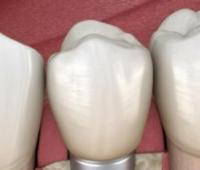
If given the choice, nearly 80% of patients would prefer zirconia implants over titanium, citing ..
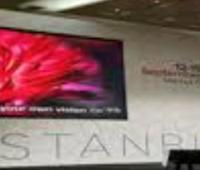
The FDI World Dental Federation chose Istanbul, a city where East meets West, as the backdrop for ..
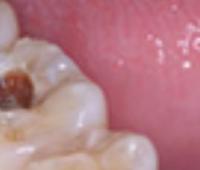
The management of deep caries lesions has evolved significantly, focusing on preserving tooth ..
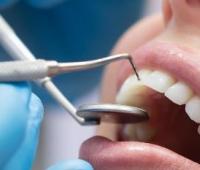
The pandemic's lessons enforced the idea of a virtual dental patient, advising us to cut down ..

Introduction: Neuro-Occlusal Rehabilitation (NOR) is a therapeutic approach to stomatognathic ..

Crowning an endodontically treated tooth is quite challenging especially in cases of badly decayed ..
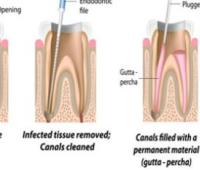
This article is a review on the various developmental anomalies related to shape of the teeth, and ..
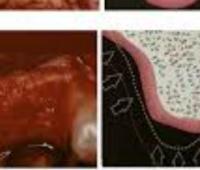
Managing osseous defects that are a result of periodontal diseases, especially when the ..

Porcelain crowns represent a significant advancement in restorative dentistry, offering benefits ..
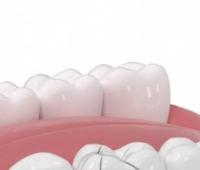
Objective: To evaluate the relationship between postoperative pain and quality of sleep and its ..
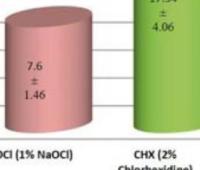
Achieving a strong and durable bond between dental restorations and dentin is critical for ..
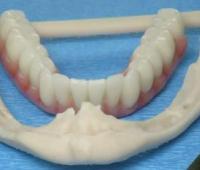
Dental implants have revolutionized restorative dentistry, providing patients with improved ..
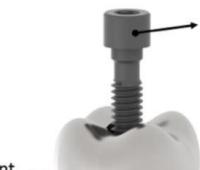
Dental implants with exclusive apical fixation are increasingly used as a solution for treating ..
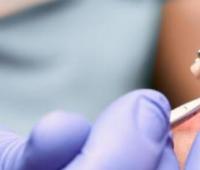
Dentistry, particularly in the intricate worlds of orthodontics and implantology, is a high-stakes ..
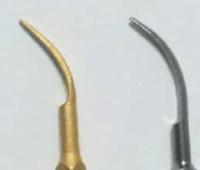
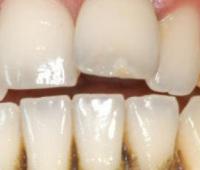
Periodontitis is an inflammatory disease of the supporting tissues of the tooth caused by specific ..
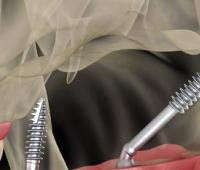
The history of maxillofacial implants dates back to ancient civilizations where rudimentary ..
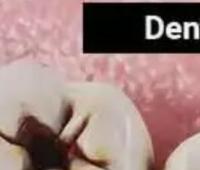
The dental caries is a multifactorial microbial disease of the hard structure of teeth, which ..

The problem of halitosis or what is commonly called bad breath affects up to 17% of Nigerians, ..
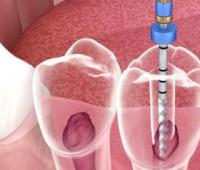
Root canal therapy (RCT) is a crucial procedure in endodontics aimed at treating pulp and ..

Dental anxiety encompasses fear, anxiety, or stress related to dental visits, often leading to ..
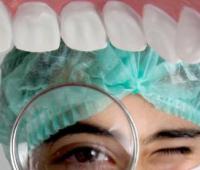
Oral diseases, especially dental caries and gum disease, are among the top ten causes of disease in ..

The rapid advancements in technology, the dental industry has seen significant changes in recent ..

Oral Submucous Fibrosis (OSMF) is a chronic, progressive, scarring disease associated with chronic ..

Pleomorphic adenoma is the most common benign tumor of the salivary glands. Its main location is in ..
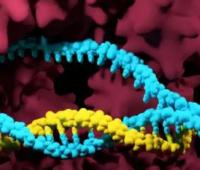
CRISPR-Cas9 technology has revolutionized genome editing and holds immense potential for ..
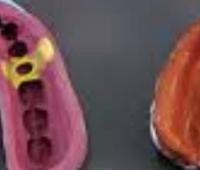
To study the result of utilizing two impression materials of various stiffness with three ..
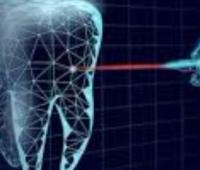
Artificial intelligence particularly the deep learning, is the cognitive function that mimics the ..
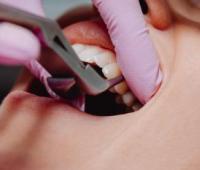
Tooth extraction or exodontia, despite the massive advances in restorative dentistry, is still one ..
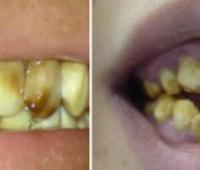
Every day we see young patients who come for cosmetic reasons, complaining of unsightly stains on ..
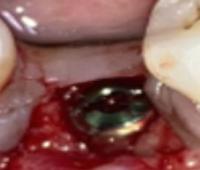
Several techniques have been developed to enhance the buccal gingival breadth, gingival height and ..
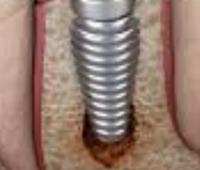
Evaluation of the impact of abutment disconnections / reconnections on peri- implant marginal bone ..
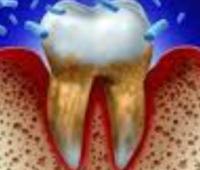
The connection between oral health and systemic well-being is increasingly recognized in ..
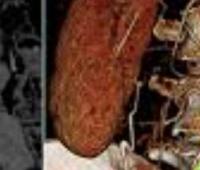
The objective of this was to determine the effects of educational, preventive and motivational ..
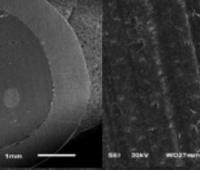
Silver diamine fluoride products (SDF) are used to arrest dental caries in deep carious lesions as ..
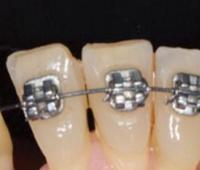
In this study, transforming growth factor-beta 1 (TGF-beta 1) was located and measured in human ..
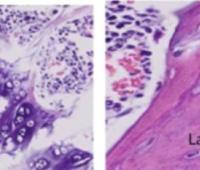
Graft materials are in use in dentistry to rehabilitate the bone loss which crop up in the oral ..
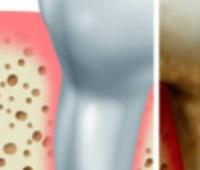
The act of smoking has been widely recognized as a significant risk factor for the development of ..

This study's goal is to determine how well UV therapy works for placing dental implants. ..
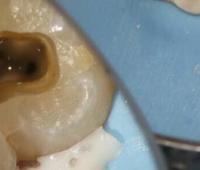
Introduction: The study aimed to assess the frequency of postoperative pain after endodontic ..

Periodontal diseases pose a significant challenge to oral and general health with their ..
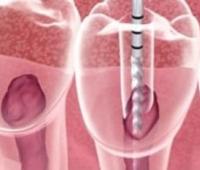
In Uganda, women continue to have the highest prevalence of oral illnesses (42.4%) compared to the ..
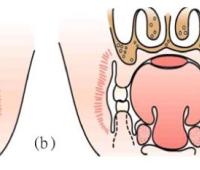
The field of epigenetics has really come to fruition this century thanks to advances particularly ..
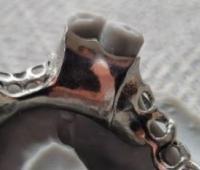
Purpose: Modern dentistry has witnessed, a rapid and continuing evolution. Concerning the implant- ..
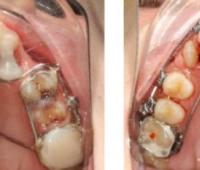
Canine impactions/ ectopic canines are always challenging yet demanding to de-impact and most would ..
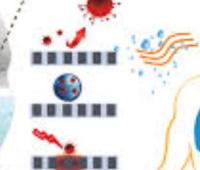
Background: Face-masks have been one of the pillars for reducing the spread of COVID-19 by limiting ..
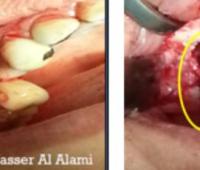
Perforation of the maxillary sinus membrane is a common complication during sinus lifting ..

Infective endocarditis is known to be a serious complication, mostly in patients who are ..
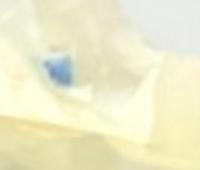
Context: In today’s era of evident-based minimally invasive dentistry, reattachment of the ..

Background: Dental implants have traditionally been focused on bone quality and quantity to house ..

Objective: Orthodontic treatment aims not only to treat one's malocclusion and facial ..


Abstract Background: Impacted or blocked out teeth present a challenge in orthodontic ..

This case report describes the successful multidisciplinary treatment of an adult orthodontic ..


The study of rickets led to the discovery of vitamin D, which is a fat-soluble steroid hormone, ..

Some Ameloblastomas are benign but turn out to be recurrent tumors, the importance of which lies in ..

The use of mesenchymal stem cells in regenerative medicine is at the forefront of both stem cell ..

Introduction: The incidence of Oral Sub Mucous Fibrosis (OSF) is commonly seen in the Indian ..

Objective: To identify the readiness, preference, and perception of undergraduate Egyptian ..

Objectives: This study was conducted in Sana'a city, Yemen to detect the prevalence of early ..

When composite resin hardens by light curing, it shrinks and undergoes deformation which occurs in ..

Since the emergence of severe acute respiratory syndrome coronavirus 2 (SARS-CoV-2) infections in ..

Curcumin, the main bioactive ingredient in turmeric, has been used to treat multiple diseases and ..
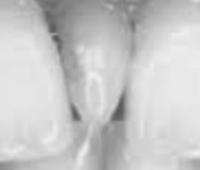
Teeth develop in the mammalian embryo via a series of interactions between the odontogenic ..
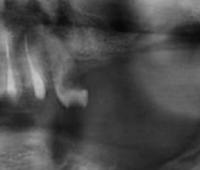
Abstract Antiresorptives (bisphosphonates: BPs, denosumab: DS)induce a marked inhibition of bone ..

Aim: The present study calculate the incidence of occurrence of oro-facial cleft patients in King ..
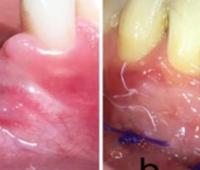
In recent years, for the restoration of lost teeth, dental implants have been used instead of fixed ..

A variety of dental and periodontal indices and parameters are used along with radiographs for the ..

Objectives: Dentists and patients are frequently confronted by a difficult treatment decision: ..